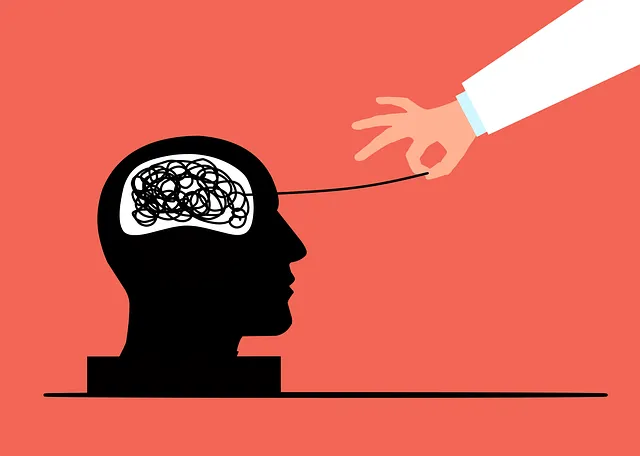The Kaiser Permanente behavioral health center Englewood offers comprehensive depression management through early intervention, self-care routines, conflict resolution skills, and evidence-based strategies. They promote holistic well-being with mindfulness practices, exercise, diet, and sleep. Their approach includes CBT, DBT, IPP, Inner Strength Development, group therapy, and cultural competency training. The center advocates for mental health policy accessibility and trauma support services, building resilience through effective coping strategies and self-awareness.
Depression is a prevalent yet manageable condition. If caught early, it’s preventable. This article guides you through essential strategies to safeguard your mental well-being. From recognizing subtle signs of depression to exploring effective therapy options and lifestyle changes, we delve into actionable steps.
At Kaiser Permanente Englewood, their behavioral health center offers specialized services tailored to individual needs. By understanding depression and adopting proactive measures, you can build resilience and lead a fulfilling life.
- Understanding Depression: Recognizing Signs Early
- Kaiser Permanente Englewood: Behavioral Health Services
- Lifestyle Changes for Mental Well-being
- Therapy and Counseling Options Explored
- Building Resilience: Coping Strategies for Prevention
Understanding Depression: Recognizing Signs Early

Depression is a complex mental health condition that affects millions worldwide, impacting one’s ability to feel joy, interest in activities once enjoyed, and even perform basic tasks. Early recognition is key to effective prevention and treatment. The first step is understanding its signs and symptoms, which can vary from person to person. Common indicators include persistent feelings of sadness, loss of interest or pleasure, changes in appetite or sleep patterns, fatigue, difficulty concentrating, and thoughts of worthlessness or suicide. Recognizing these early warning signs at the Kaiser Permanente behavioral health center Englewood—a trusted resource for mental well-being—can enable individuals to seek help promptly.
Prompt intervention plays a crucial role in managing depression effectively. By learning conflict resolution techniques and implementing self-care routine development for better mental health, individuals can proactively mitigate risks. Moreover, staying informed about the latest research through mental health policy analysis and advocacy ensures access to evidence-based strategies and resources. Early detection and proactive measures are powerful tools in the battle against depression, offering a brighter path towards recovery and improved quality of life.
Kaiser Permanente Englewood: Behavioral Health Services

Kaiser Permanente Englewood offers a comprehensive behavioral health center designed to provide effective depression prevention strategies. Their services focus on addressing the root causes of mental health issues, promoting holistic well-being, and empowering individuals with coping mechanisms tailored to their unique needs. The center incorporates evidence-based practices alongside innovative approaches, such as conflict resolution techniques and self-esteem improvement programs, to create a supportive environment that fosters resilience.
In addition to individual therapy sessions, Kaiser Permanente Englewood’s behavioral health team actively engages the community through outreach programs aimed at raising mental health literacy and access to resources. By implementing these initiatives, the center not only supports individuals facing depression but also works towards building a stronger, more resilient community. The integration of community outreach demonstrates a commitment to going beyond traditional therapy, ensuring that prevention strategies reach those who might otherwise be underserved.
Lifestyle Changes for Mental Well-being

Maintaining a healthy lifestyle is an essential aspect of depression prevention and overall mental well-being. The Kaiser Permanente behavioral health center in Englewood emphasizes the power of holistic care, encouraging individuals to adopt certain habits that can significantly impact their emotional resilience. Regular exercise, for instance, releases endorphins known to boost mood and reduce stress. A balanced diet, rich in nutrients, supports brain health and overall energy levels, which is crucial in preventing burnout. Adequate sleep is another cornerstone; prioritizing quality rest allows the body and mind to rejuvenate, providing a shield against depression.
Additionally, incorporating mindfulness practices like meditation can be transformative. The Burnout Prevention Strategies for Healthcare Providers often highlight the benefits of mindfulness as an Anxiety Relief tool. This simple yet powerful technique teaches individuals to stay present, fostering a sense of calm and reducing negative thought patterns. By integrating these lifestyle changes, individuals can create a robust foundation for their mental health, ensuring they are better equipped to navigate life’s challenges without succumbing to depression.
Therapy and Counseling Options Explored

At a Kaiser Permanente behavioral health center Englewood, individuals seeking support for depression can explore a range of therapy and counseling options tailored to their unique needs. These centers offer evidence-based treatments such as cognitive-behavioral therapy (CBT), dialectical behavior therapy (DBT), and interpersonal psychotherapy (IPP), which have proven effective in managing depressive symptoms. Mental Health Policy Analysis and Advocacy plays a crucial role in ensuring these services are accessible, while Trauma Support Services provide specialized care for those with historical trauma, a common underlying factor in many cases of depression.
In addition to traditional therapy models, the centers emphasize Inner Strength Development, encouraging clients to cultivate resilience and coping mechanisms that promote long-term well-being. Through group therapy sessions, mindfulness practices, and holistic approaches, individuals are equipped to navigate life’s challenges with enhanced emotional agility and a greater sense of empowerment.
Building Resilience: Coping Strategies for Prevention

Building resilience is a key component of depression prevention, offering individuals the tools to navigate life’s challenges and maintain mental wellness. The Kaiser Permanente behavioral health center Englewood emphasizes the importance of coping strategies as an integral part of overall healthcare. These strategies empower individuals to manage stress, anxiety, and difficult emotions effectively. One powerful tool is mindfulness practices, which encourage living in the present moment and cultivating a non-judgmental awareness of thoughts and feelings.
Additionally, the mental wellness journal has gained recognition as a valuable exercise for self-reflection and emotional processing. By jotting down daily experiences, thoughts, and emotions, individuals can gain insights into their triggers and develop healthier coping mechanisms. The Kaiser Permanente behavioral health center Englewood also promotes cultural competency training among healthcare providers to ensure sensitive and effective support for diverse populations. This training enables professionals to offer tailored guidance, addressing unique cultural perspectives on mental health and providing Anxiety Relief tailored to individual needs.
Depression prevention is a proactive approach that involves recognizing early signs, making lifestyle changes, exploring therapy options, and building resilience. By understanding the importance of mental well-being and leveraging resources like the Kaiser Permanente behavioral health center in Englewood, individuals can effectively navigate and prevent depressive episodes. Integrating these strategies into daily life empowers folks to foster resilience, promote positive mental health, and seek support when needed, ultimately enhancing their overall quality of life.






